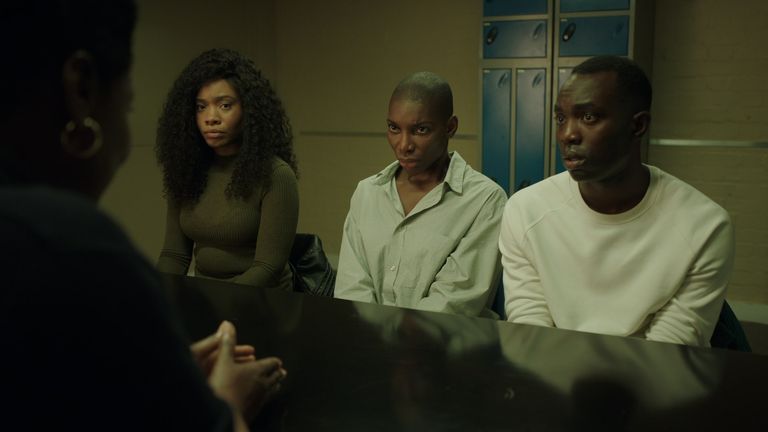More . . .
|
Indeed, for True Things, she hired Ita O’Brien, the intimacy coordinator who has worked on Normal People, Sex Education and I May Destroy You. "In the past, people would avoid the subject of a sex scene and not talk about it until the day before, so you’d be left on the day to make it up as you went along," Wilson says. "At best, people felt awkward, and at worst, exploited or unsafe. An intimacy coach demands that the conversation happen with the director and actors in advance, so together you find a way to express that part of the story in a really honest, specific and safe way."
More . . .
0 Comments
BY BROOKE THEIS
Her latest project, True Things, is the first film Wilson has both co-produced and starred in. Adapted from the novel by Deborah Kay Davies, the psychological drama is set in modern-day Ramsgate, and follows a benefits officer whose life becomes entwined with that of an ex-convict through mutual infatuation. She explained that it was important for her to employ an intimacy coach, Ita O’Brien, when filming, to help work through the sex scenes. “For so many years in TV and film there was the sense that if you were an actress, you’d just get naked, that’s what you do, and that wasn’t brought into question much,” she said. “Women and young girls weren’t being asked if they were comfortable or not – and very often they weren’t. And they were being encouraged, and sometimes coerced, into being in those vulnerable positions. “It’s not about taking sex off the screens, it’s about showing it in a more truthful and respectful way,” she added. “Having intimacy coaches means that you can talk about your boundaries, or what you feel uncomfortable about, and you can actually get much better sex scenes as a result.” More . . . BY ROSIE HUMPHREY
As trauma reverberates through these characters’ lives, it’s important that the actors portraying them are psychologically safe and supported. That’s why Ita O’Brien, a U.K.-based intimacy coordinator, was vital to the construction of these intimate moments, choreographing each move, or “beat” as O’Brien calls it, to create a seamless structure of intimacy and realism between the actors. To ensure this realism is enacted safely, each beat is composed down to the placement of hands or a certain number of thrusts in order to protect the actors’ emotional and physical boundaries. As the architect of safe spaces on set, O’Brien worked closely with the artist well-being practitioner, Louise Platt, a qualified psychotherapist, who was on call to provide emotional and psychological support for the actors while they performed sensitive content. This integrated approach of therapeutic support feels quite revolutionary, as Platt mentioned on Twitter and unfortunately is a practice that, until the Me Too movement, wasn’t always followed. The infamous sex scene in Blue Is the Warmest Colour is a prominent example where actors found a sequence distressing to perform; leads Adèle Exarchopoulos and Léa Seydoux described the 10 grueling days of filming as “horrible” and “really suffering.” After Hollywood's awakening, O’Brien pioneered the role of intimacy coordinator and developed the Intimacy on Set guidelines to ensure that scenes of nudity, intimacy, and simulated sex are performed safely without compromising the actors’ personal boundaries. More . . . |
By publication
All
Archives
October 2023
|




 RSS Feed
RSS Feed
